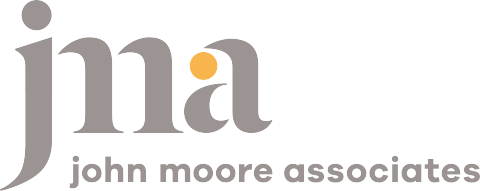Retirement Plans for Business Owners
Share This Insight
Most solo entrepreneurs work tirelessly to build something lasting, yet many miss key opportunities to secure their own financial future.
Not long ago, I sat down with a business owner who had been faithfully saving for years. She had done everything "right" according to the advice she'd received: setting aside money diligently in a taxable investment account, parked mostly in a money market fund. But as we dug into her situation, a glaring missed opportunity came into focus. For the past decade, she had been saving well beyond the annual IRA contribution limits but had never been advised to set up a business retirement account.
Because of that, she missed out on years of potential tax deductions or, had she used a Roth option, years of tax-free growth. The money she had set aside was still growing, but not nearly as efficiently as it could have been.
This story is not uncommon. Solo entrepreneurs often receive incomplete or generic advice that fails to account for the unique opportunities available to them. Retirement plans like the SEP IRA and Solo 401(k) offer strategic and flexible ways for business owners to care for themselves and the resources God has entrusted to them.
A Stewardship Mindset
For the Christian business owner, retirement isn’t about escape or indulgence. It’s about wisely preparing for a new season of calling. As Proverbs 21:20 says, “Precious treasure and oil are in a wise man's dwelling, but a foolish man devours it.”
Setting up a retirement plan is a way of storing up wisely and building long-term value, not just for yourself, but also for your household and future responsibilities.
If you're self-employed with no full-time employees (other than a spouse), two plans rise to the top: the SEP IRA and the Solo 401(k). Let’s break down the details.
SEP IRA: Simplicity and Flexibility
A SEP IRA (Simplified Employee Pension) is easy to establish and administer. Depending on how the business owner is compensated, contributions can generally be made up to 25% of eligible earnings (or about 20% of net self-employment income for sole proprietors), with a maximum of $70,000 in 2025.
Thanks to SECURE Act 2.0, SEP IRAs can now accept Roth contributions, giving solo entrepreneurs the opportunity to enjoy tax-free growth on after-tax dollars. However, these Roth contributions are considered taxable income in the year they're made, and proper elections must be made before contributions are processed.
Key advantages:
- Low administrative burden
- Flexible annual contributions (helpful for variable income years)
- Now allows Roth contributions (if plan is set up to accept them)
Key limitations:
- Only employer contributions are allowed (no employee or catch-up contributions)
- No access to a loan provision
- Roth SEP IRAs are still limited in availability and not universally adopted by providers
SEP IRAs work well for solo owners who want simplicity and are comfortable without employee deferrals or borrowing features.
Solo 401(k): Greater Contribution and Control
A Solo 401(k) is specifically designed for self-employed individuals with no employees. It allows both employee salary deferrals and employer contributions, enabling higher total contributions than a SEP.
In 2025, contributions can include:
- Up to $23,500 in employee salary deferrals ($30,500 if age 50 or older)
- Plus up to 25% of eligible compensation as an employer contribution (or about 20% of net self-employment income for sole proprietors)
- With a combined maximum of $70,000 ($77,500 with catch-up contributions)
Additional features:
- Roth contribution option for employee deferrals
- Access to plan loans
- Required to file Form 5500-EZ if your Solo 401(k) assets exceed $250,000 at year-end
This plan is ideal for solo entrepreneurs looking to maximize tax-advantaged savings and flexibility.
Choosing the Right Plan
Here’s a quick guide:
- Choose SEP IRA if you value simplicity, have fluctuating income, and want to take advantage of the new Roth option without the complexity of 401(k) rules.
- Choose Solo 401(k) if you want to save more, utilize Roth employee deferrals, access loans, and are comfortable with a bit more administration.
Either plan can serve as a tool for wise stewardship, enabling you to prepare for the future without neglecting today’s responsibilities.
Practical Steps
Before making a decision, talk to your advisor about your income structure, business goals, and long-term retirement objectives. If you're considering a Solo 401(k), be aware that it must be established by year-end to allow for employee deferrals for that tax year. Regardless of which plan you choose, it's wise to review it annually to adjust your contributions and reassess whether the plan still aligns with your evolving financial picture.
Scripture encourages us to be diligent and forward-thinking. Retirement planning for solo entrepreneurs isn’t just a tax decision. By preparing well, you honor God, provide for your household (1 Timothy 5:8), and model financial wisdom to those around you.
If you're a solo entrepreneur wondering whether you're using the right retirement plan, let's talk. We can help you evaluate your options and build a strategy rooted in biblical stewardship.
Subscribe for More Financial Insights
Never miss a post. Receive notifications by email whenever we post a new JMA Insight.
